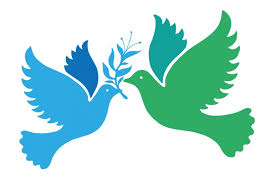Today, the countries and communities can no longer afford to live in isolation from each other. In our closely interlinked world, peace and prosperity for everyone crucially depends on harmonious relations between communities and countries.
Islam, as per the Quran teachings and examples provides inspiration and appropriate guidance peaceful relations between communities and countries and for non- violent conflict resolution and peace building methods and approaches. Islam positively encourages its followers to work for peace and for harmonious relations between them and people belonging to other communities.
The role of Islam in conflict settlement and peace building has often been depicted in binary terms: it is seen as a source either of violence or of reconciliation. Islam is being seen as inherently violent and that all forms of Islamism are nothing but an antecedent of violence, terrorism and totalitarianism.
Islam has a very rich inheritance of addressing the conflicts in the world but sadly it is alleged as a part of problem not unlikely. The Islamic texts and Muslim heritage approaches to the conflict resolution drawn on religious values, presents a considerable wealth of responses based on positive solutions to the conflict.
Islam means to enter into a state of peace, through the submission to God. The Qur’an is the fundamental source of Islamic law. It contains norms for all areas of life, including also conflict and the peaceful resolution of disputes.
The conflict resolution mechanisms that have been developed and effectively applied to resolve conflicts in Islamic culture such as mediation ‘wasata’ reconciliation ‘sulh’, dialogue and ‘hiwar. In the Qur’an there are also general principles regarding peace building process.
- Sulh: (conciliation) The Qur’an constantly uses the word ‘Sulh’ in resolving all types of conflicts. It means seeking peace, reconciliation, compromise and settlement. The Qur’an commends Suhl that means conciliation, as the superior moral course of action to be taken by disputing parties. The active form of the same commandments is ‘Islah’, that means to make something good, properly or to reconcile and settle. Reconciliation refers to different possible kind of amicable settlements, to compromises and to the willingness to submit the conflict to the decision of arbitrators ‘Hakam’.
- Wasta: (Mediation) In peace- building process, one of the options to resolve dispute and conflicts is mediation ‘wasta’. The third-party mediator would ensure that all parties were satisfied with the outcome. Other practices could use ‘tahkeem’ or using intermediaries to represent the parties. These intermediaries should be able to represent the parties’ position as clearly as possible to negotiate on their behalf, and guarantee that the parties receive a fair settlement.
- Hiwar: (Negotiations) Negotiation is a powerful method for resolving conflicts. Negotiation is a diplomatic activity and it takes place in return to the exchange of information and understanding. The basic techniques are: Encouragement, compromise and bargaining. In Islam we find the most palpable negotiation technique compromise which was made functional by the Prophet of Islam in the treaty of Hudaybiya in order to reach to an agreement concerning the demands of both of Muslims and Quraish.
Negotiation is most powerful approach to find solutions of all divergent issues. The essential lesson from this plurality is to dialogue, collaborate and cooperate and develop a real healthy understanding of one another.
The Islamic precepts are meant to maintain peaceful, healthy, meaningful relationships with all of humanity, but sometimes, relationship is disrupted by conflicts, whether interpersonal, communal, national or international. Its restoration is essential for the sake of fairness and justice. Peace-building efforts work towards preventing an escalation of conflict and establishing a durable and self-sustaining peace.
Hence, to come out a concrete solution of dispute and conflict occurred in individual, national or international level, the Islamic mechanisms are mediation ‘wasata’ reconciliation ‘sulh’, dialogue and ‘hiwar. These are the essential steps for living in peace and resolving all conflicts and peace -building process.
Dr. Meraj Ahmad Meraj
Assistant Professor
Department of Arabic, Aliah University, Kolkata

